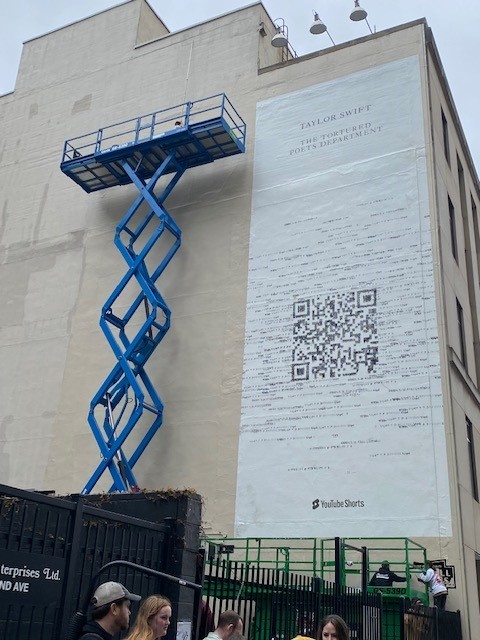Gov. Bruce Rauner vetoed a measure Friday that would have appropriated $3.9 billion for higher education and social services for the current fiscal year.
The bill was previously approved in April by both houses of the Illinois General Assembly, which are both controlled by Democratic majorities. Rauner called the legislation an “unfunded, empty promise” Friday.
“Social service agencies and providers need real funding, not empty promises,” Rauner said in a statement. “Social services are being squeezed out by State debt and pension obligations, personnel costs, and other mandated spending. The only way to ensure that social services are fully funded is to pass a balanced budget, where spending is in line with revenues.”
The state has been without a budget since July of last year. As a result, the state’s higher education and social services have struggled significantly. Despite a push for bipartisan solutions, the General Assembly adjourned last Tuesday without passing a budget.
Senate President John Cullerton’s office claimed to be disappointed by the veto, but remained confident that Rauner would “do the right thing” and sign a bipartisan, emergency budget for human services.
“It’s disappointing that the governor chose to veto the entire proposal,” Cullerton spokesman John Patterson said in a statement. “The governor’s veto underscores the need for immediate action on the balanced, bipartisan emergency budget for human service providers that has been on his desk for nearly a month.”
“His administration identified the dollars,” Patterson said. “Nearly $700 million in overdue payments could go to businesses as soon as he signs it.”
Local
The state has relied on court orders and consent decrees for funding over the course of the impasse and has failed to make payments for certain schools and services because money was not appropriated in a budget.
As a result, a group of Illinois-based human and social service agencies and companies filed a lawsuit against Rauner and members of his administration in May seeking payment for over $100 million. An early-childhood-education nonprofit led by the governor’s wife, Diana Rauner, joined the lawsuit later in the month.
Additionally, Chicago State University was forced to lay off more than 300 employees in April after cutting the semester short to save critical funds.
Rauner continued to urge lawmakers to pass a comprehensive, balanced budget for this fiscal year and the next after vetoing the measure Friday.
“A balanced budget is not just a constitutional requirement or the right thing to do for taxpayers; it is the only possible way to manage State government over the long-term,” Rauner said in a statement. “Unlike the federal government, the State is unable to sustain deficit spending over multiple years without significantly impairing its operations.”
The governor also decried the state’s cash-flow problem, which includes a bill backlog of over $7 billion.
In response to the governor’s veto, the Service Employees International Union Healthcare Illinois asked Rauner to “stop the blame game and do what’s right.”
“The governor’s veto of Senate Bill 2046 is more evidence this governor wishes to continue the hostage situation he has caused in Illinois,” union president Keith Kelleher said in a statement. “He has spent recent days blaming everyone but himself for holding up a budget until he gets his union-busting demands that have nothing to do with saving taxpayer dollars and everything to do with weakening rights and protections for Illinois’ working families and driving down wages and benefits for ALL workers.”
Rauner has been touring the state since last Wednesday pushing stopgap measures to fund schools and other essential government services. Rauner said he created stopgap measures because school funding was integrated into House Speaker Mike Madigan’s budget proposal, which he says is $7 billion out of balance.
During the tour, the governor has also said that Democratic lawmakers were relying on Illinois taxpayers to bail out Chicago Public Schools and that their funding plan would require tax hikes.
“They put school funding inside the large, unbalanced budget, integrated it so I can’t separate it, so they can hold up school funding for the massive unbalanced budget that’s going to force our income tax up over 5.5 percent,” Rauner said.
But without money appropriated, schools might not be able to open in the fall.
Illinois Comptroller Leslie Munger delivered a stark warning about the negative effects of a prolonged budget impasse Thursday. She warned about the $23 billion in spending for things like schools, health and human services and higher education that would stop if legislation isn’t passed in Springfield.
“The facts are that our social service network is being torn apart, that our most vulnerable residents are losing critical services, that our colleges and universities, many of them, are on the verge of collapse, and that businesses and organizations throughout our state are being forced into mass layoffs that leave families with no way to meet their financial obligations,” Munger said Thursday. "All of this is happening because leadership in Springfield has refused to pass a budget and that's unconscionable."
Given the state's dire financial outlook, Munger claimed "a stopgap would be better than nothing,” but pushed for a full, balanced budget Thursday.
Additionally, Illinois’ credit rating was downgraded by two agencies this week, Moody’s and S&P. Rauner’s office issued a statement on the downgrade Thursday, placing blame on Democrats.
“When the General Assembly adjourned without passing a balanced budget, the Administration warned the super majority in the legislature there would be consequences,” Rauner spokeswoman Catherine Kelly said. “This report underscores the need for real structural changes to repair the years of unbalanced budgets and deficit spending by the majority party on Illinois’ finances.”
“Every rank-and-file Democrat who blindly followed the Speaker down this path is directly responsible for the downgrade,” the statement added.
House Speaker Mike Madigan responded Thursday, blaming the governor for the downgrade.
"It's an outrage that we have gone nearly a year without a state budget," Madigan said in a statement. "This downgrade is directly attributable to Governor Rauner's reckless decision to hold the state houstage for more than a year and to create the crisis he desired.
“The governor's own proposed budgets are billions of dollars out of balance, and, for almost a month, a bipartisan plan to provide emergency funding for human services providers and our most vulnerable has languished on Governor Rauner's desk,” Madigan added.



